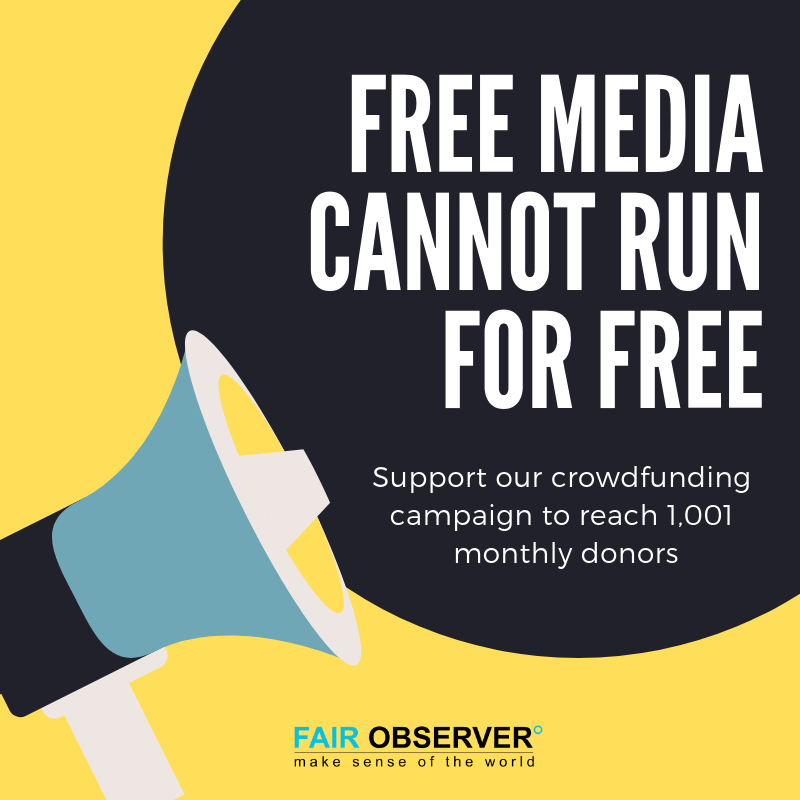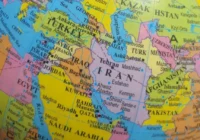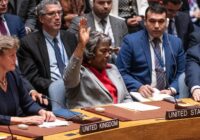In the Middle East, frontlines and tactics may be shifting, but US and Gulf geopolitical goals have not.
Donald Trump’s threat to “devastate” the Turkish economy if Ankara attacks Syrian Kurds serves his broader goal of letting regional forces fight for common goals, like countering Iranian influence in Syria.
President Trump’s comments were designed to preempt a Turkish strike against the People’s Protection Units (YPG). Turkey asserts that the YPG is part of the outlawed Kurdistan Workers’ Party (PKK), a Turkish group that has waged a low-intensity war in southeastern Turkey, a predominantly Kurdish region, for more than three decades. Like Turkey, the United States and Europe have designated the PKK as a terrorist organization.
Turkey has been marshaling its forces for an attack on the YPG since Trump announced the withdrawal of US forces from Syria last month. This would be the third offensive against Syrian Kurds in recent years.
In a sign of strained relations with Saudi Arabia, Turkish media with close ties to the government have long reported that Riyadh is funding the YPG. There is no independent confirmation of these allegations. Relations between Ankara and Riyadh deteriorated following the murder of Saudi journalist Jamal Khashoggi at the Saudi Consulate in Istanbul in October 2018.
Turkish newspaper Yeni Safak reported in 2017 — days after the Gulf crisis erupted pitting an Arab alliance against Qatar, which is supported by Turkey — that American, Saudi, Emirati and Egyptian officials had met with the PKK and the Democratic Union Party (PYD) to discuss the future of Syrian oil once the Islamic State (IS) had been defeated. Turkey claims the PYD is the Syrian political wing of the PKK.
Turkey’s semi-official Anadolu Agency reported in May 2018 that Saudi and YPG officials had met to discuss cooperation. Saudi Arabia promised to pay Kurdish fighters $200 a month if they joined an Arab-backed force, Anadolu said. Riyadh allegedly sent aid to the YPG on trucks that traveled through Iraq to enter Syria.
In August 2018, Saudi Arabia announced that it had contributed $100 million to northeastern Syria. The funds were earmarked for agriculture, education, roadworks, rubble removal and water service. This involved territory controlled by the US-backed Syrian Democratic Forces, which the YPG is a significant part of. Riyadh said the payment, announced on the day that US Secretary of State Mike Pompeo arrived in the kingdom, was intended to fund stabilization of areas liberated from control by IS. Turkish media, however, insisted that the funds would flow to the YPG.
“The delivery of $100 million is considered as the latest move by Saudi Arabia in support of the partnership between the U.S. and YPG. Using the fight against Daesh [Islamic State] as a pretext, the U.S. has been cooperating with the YPG in Syria and providing arms support to the group. After Daesh was cleared from the region with the help of the U.S., the YPG tightened its grip on Syrian soil taking advantage of the power vacuum in the war-torn country,” the Daily Sabah said.
Saudi Arabia has refrained from including the YPG and the PKK on its extensive list of terrorist organizations, despite then-Foreign Minister Adel al-Jubeir describing the organization as a “terror group” in 2017.
Different Tactics, Same Goals
This week’s threat by Trump and his earlier vow to stand by the Kurds despite the US troop withdrawal gives Saudi Arabia and other Arab states political cover to support the Kurds as a force against Iran’s presence in Syria. It also allows the Saudis and Emiratis to attempt to thwart Turkish attempts to increase its regional influence in the Middle East. Saudi Arabia, the United Arab Emirates and Egypt have insisted that Turkey must withdraw its troops stationed in Qatar as a condition to end the diplomatic and economic boycott of the Gulf state, which was enforced in June 2017.
 The UAE, determined to squash any expression of political Islam, has long led the autocratic Arab charge against Turkey because of its opposition to the 2013 military coup in Egypt, as well as Ankara’s close ties with Iran and its support for Qatar and Islamist forces in Libya.
The UAE, determined to squash any expression of political Islam, has long led the autocratic Arab charge against Turkey because of its opposition to the 2013 military coup in Egypt, as well as Ankara’s close ties with Iran and its support for Qatar and Islamist forces in Libya.
Saudi Arabia, the UAE and Egypt back General Khalifa Haftar, who commands anti-Islamist forces in eastern Libya, while Turkey — alongside Qatar and Sudan — supports the Islamists. Libyan and Saudi media reported that authorities had repeatedly intercepted Turkish arms shipments destined for Islamists, including one this month and another in December 2018. Turkey has denied the allegations.
“Simply put, as Qatar has become the go-to financier of the Muslim Brotherhood and its more radical offshoot groups around the globe, Turkey has become their armorer,” said Turkey scholar Michael Rubin.
Ironically, the fact that various Arab states, including the UAE and Bahrain, recently reopened their embassies in Damascus — with tacit Saudi approval after having supported forces aligned against Syrian President Bashar al-Assad for much of the civil war — makes Gulf support for the Kurds more feasible. Seemingly left in the cold by President Trump’s announced withdrawal of American forces, the YPG has sought to forge ties with the Assad regime. In response, Syria has gathered its troops near the town of Manbij, expected to be the flashpoint of a Turkish offensive.
Commenting on last year’s two-month long Turkish campaign that removed Kurdish forces from the Syrian town of Afrin, as well as Turkish efforts since to stabilize the region, Gulf analyst Giorgio Cafiero noted that “for the UAE, Afrin represents a frontline in the struggle against Turkish expansionism with respect to the Arab world.”
The same could be said from a Saudi and Emirati perspective for Manbij, not only with regard to Turkey, but also Iran’s presence in Syria. Frontlines and tactics may be shifting, but US and Gulf geopolitical goals have not.
The views expressed in this article are the author’s own and do not necessarily reflect Fair Observer’s editorial policy.
Support Fair Observer
We rely on your support for our independence, diversity and quality.
For more than 10 years, Fair Observer has been free, fair and independent. No billionaire owns us, no advertisers control us. We are a reader-supported nonprofit. Unlike many other publications, we keep our content free for readers regardless of where they live or whether they can afford to pay. We have no paywalls and no ads.
In the post-truth era of fake news, echo chambers and filter bubbles, we publish a plurality of perspectives from around the world. Anyone can publish with us, but everyone goes through a rigorous editorial process. So, you get fact-checked, well-reasoned content instead of noise.
We publish 2,500+ voices from 90+ countries. We also conduct education and training programs
on subjects ranging from digital media and journalism to writing and critical thinking. This
doesn’t come cheap. Servers, editors, trainers and web developers cost
money.
Please consider supporting us on a regular basis as a recurring donor or a
sustaining member.
Will you support FO’s journalism?
We rely on your support for our independence, diversity and quality.






